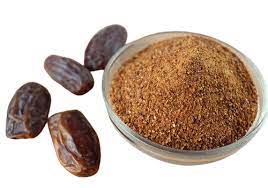The Health Benefits of Date Sugar

Date sugar has always been a popular sweetener. It can be used for baking, for creating pastries, for cooking, and even for coating dough. Date sugar can also be used as an alternative to table sugar. Since the sweetness of this sweet comes from the actual date fruit rather than refined white sugar, it is considered a healthier alternative to regular sugar.
Dated sugar comes from dehydrated unrefined dates which have been soaked and then blended to create a smooth and creamy sweetener. Date sugar contains no calories, no fats, and no allergens. Unlike other refined sugars, the presence of residual fiber in the sugar makes the sweet comparatively more stable to temperature and flavor. This means that you can put it in anything you want in your desserts and cakes, including ice cream, ice tea, pudding, puddings, pies, bread, crock pot recipes, and just about any dessert you can think of. Because whole dates are more stable than whole grain sugar, date sugar is often preferred over refined white sugar as a whole food sweetener.
There are several different types of date sugar on the market. Each has its own benefits and uses, but granulated or brown sugar is probably the best option for baking recipes. This is because:
* Potassium. Date sugar doesn’t contain the sodium that comes from whole dates, so it will not cause any unpleasant side effects if you have high blood pressure or heart problems. Brown sugar does have a lot of sodium, however. Whole dates and brown sugar are also a good choice for cooking, especially when it comes to cooking brown sugar granulated dried dates into a paste to use for soups and sauces.
* Fiber. While the potassium and fiber aren’t the only thing that you’ll gain from using date sugar, they are two of the most important nutrients. High levels of potassium and fiber will help you feel full longer and contribute to regular bowel movements. Brown sugar is a good source of fiber as well, although it is debatable whether or not it contributes to regular bowel movements as efficiently as whole dates.
* Nutrients. Most people know that dates, especially the dry fruit variety, are packed with protein, which is vital to building strong bones and muscles. And although many people use dates in place of other vegetable based sweeteners, dates are still a great source of healthy, nutrient-rich pulp. This pulp adds several key nutrients to baked goods, including B vitamins, iron, calcium, manganese, potassium, riboflavin, and folic acid. You’ll find that you can get plenty of these nutrients by using granulated sugar (dried fruit) as a replacement or in addition to regular sugar in your baking recipes.
* Antioxidant capacity. Although the health benefits of dates seem to all point to their antioxidant capacity, few people are aware of just how antioxidants benefit your body. Free radicals can cause damage to your arteries and to your DNA if left unchecked. To counter this damage, eat plenty of fruits and vegetables rich in antioxidants, and load up on high quality, natural date sugar as a sweetening agent. The antioxidant capacity of a product like date sugar is enough to boost your immune system and ward off disease.
Date sugar isn’t the only type of natural sweetener that provides health benefits. For example, dried fruit is also a sweetening agent that provides many health benefits. Dried fruit contains lots of healthful antioxidants. In addition to boosting your immune system, dried fruit has the added benefit of being very low in calories, and contains no added sugar. Check out the list of added benefits above to see why dried fruit is an excellent choice for your baked goods, or for use as a sweetener in your recipes.